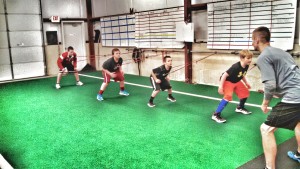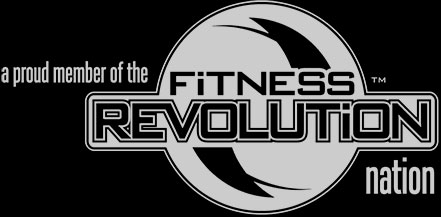Years ago, circa 1990, in a galaxy far, far away, I started out training people in a local YMCA. I was in charge of a new Nautilus room (wow, you will never hear those words in 2015!). It was a good gig: show them how the state-of-the-art machines worked, count their reps and make sure they didn’t injure themselves. Fast forward to the mid 1990’s, where I was a “personal trainer” fresh out of college. I designed programs, counted their reps, and made sure they didn’t get hurt. I look back at those days and realize they were necessary steps, but, I was just a personal trainer. In retrospect, I almost feel like I was short-changing my clients. At the time, I thought I was doing an okay job, but I could not be more mistaken. I was just a trainer. Now, I am a coach. What’s the difference, you ask? Here is my take….
Almost all gyms have a personal training department; they are asked to train, to sell and get  results. Sounds good to me. They meet their quotas, train some folks, go home and do it again. By the way, the attrition rate for trainers is ridiculously high. The average trainer leaves his/her job after only 12-14 months. So, where is the disconnect? I believe, they haven’t mastered the art of coaching yet!
results. Sounds good to me. They meet their quotas, train some folks, go home and do it again. By the way, the attrition rate for trainers is ridiculously high. The average trainer leaves his/her job after only 12-14 months. So, where is the disconnect? I believe, they haven’t mastered the art of coaching yet!
The biggest distinction that I feel separates a trainer from a coach is the personal relationships that develop with coaches. I made some unbelievable friendships when I owned and operated my personal training business, but nothing like the relationships that I have developed since I evolved into a coach. In fact, I keep in contact with several of my previous clients to this day. I realized very quickly, that while someone may initially hire a trainer to get them stronger, leaner, faster, bigger, the reason they continue to hire you is because of the relationship that organically develops. Now, instead of the workout itself, I like to focus on the Big Picture items:
How can I move people from needing activity to choosing activity to LOVING activity?
How can I help someone find their awesomeness?
How can I help as many people as possible, in as many ways as possible, as often as possible?
At the risk of offending trainers who are reading this, the profession can learn a lot from the coaches of the world and less from the trainers of the world. It is great to be knowledgeable, get someone to lose weight or set a PR in the bench press. But, is there more? Can you go farther, go deeper? Can you challenge someone in all areas of their life, not just the physical? Are you memorable, or forgettable? I forgot about almost of my coaches once I became an adult; it was no fault of their own, but no one really coached with passion and caring.
The real training happens between the drills, between the sets, between the sessions: It is where the genuine lessons are taught, the true knowledge and wisdom is delivered and friendships are forged. There is NO better feeling than hearing from a parent, coach or the athlete that we made a difference in some aspect of their life, especially if it comes several years later.
So, to illustrate this point another way, from one of the legends in the field, here is the great Vern Gambetta:
Coaching is not something you do to the athlete; it is something you do with the athlete. It is a cooperative venture, a partnership. Never lose sight of the twenty-four hour athlete concept. The athletes we work with train for two to four hours a day. It is a fundamentally unbalanced equation because the other twenty to twenty two hours have more of an impact on the athlete’s success or failure in their chosen sport than the training time. It is easy to fall into the trap of training not coaching. Training only pays attention to the actual workout; manipulation of sets, reps, heart rates, maximum lifts etc. Coaching on the other hand develops the whole person, mentally physically and socially. Coaching is working closely with the athletes to define their goals and give them the tools to be able to achieve their goals. Coaching is a creative process that takes imagination and enthusiasm. Coaching empowers the athlete to take a degree of responsibility for their actions. As the athletes career progresses the athlete should assume a greater degree of responsibility so that coach assumes more of an advisory capacity. Frank Dick, former chief coach of Athletics in Great Britain, put it best when he said that during the course of athlete’s career the coach’s role evolves from that of a guiding light to a mirror. Coaching, like parenting, teaching, and managing provide the roots to grow and the wings to fly.

